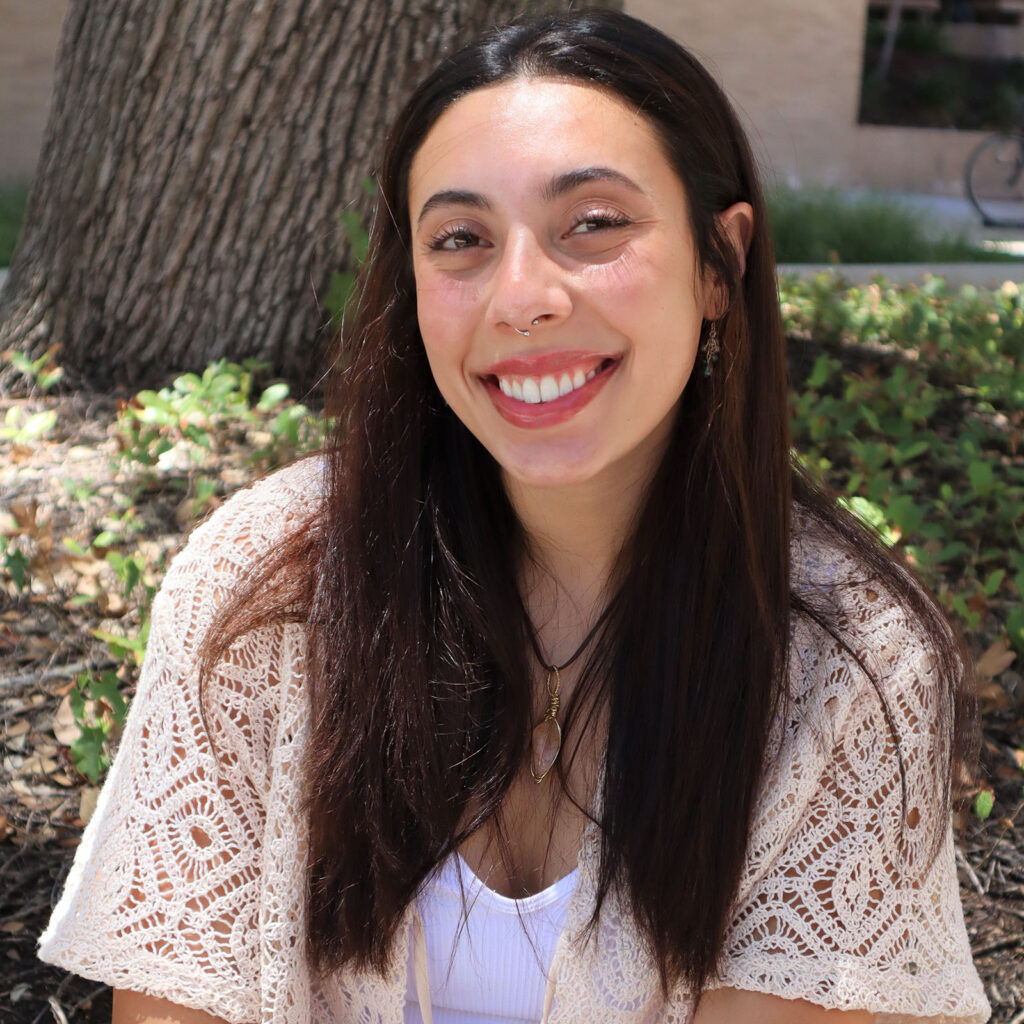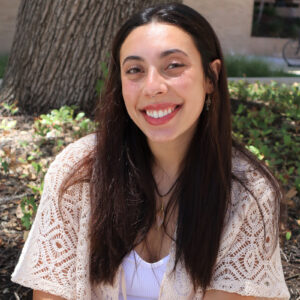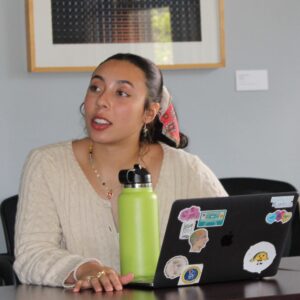Illuminating Humanities: America Jimenez
Highlighting Humanities Research and its Impact
America Jimenez | Department of Philosophy
by Megan Bodily


America Jimenez, 2023-24 Glasscock Undergraduate Summer Scholar, Department of Philosophy, Texas A&M
The Glasscock Center is excited to continue this series that highlights humanities research at Texas A&M, as well as the vital role played by the humanities beyond the academy.
For this highlight, we invite America Jimenez to tell us about her experience as a Glasscock Center Undergraduate Summer Scholar (UGSS) participating in the Right to Vote seminar co-directed by Dr. Katherine Unterman (HIST) and Dr. Linda Radzik (PHIL).
America Jimenez is a Junior pursuing a major in Philosophy and a minor in Spanish at Texas A&M University. She plans to attend law school after graduating with a concentration on immigration law. Initially, Jimenez was pursuing a nursing degree but transferred to philosophy after meeting with an immigration lawyer whose passion for their job impacted her. An additional motivation for Jimenez’s degree change: “I also realized I get queasy.”
Jimenez is a Glasscock Center Undergraduate Summer Scholar (UGSS) who participated in the Right to Vote seminar co-directed by Dr. Katherine Unterman (HIST) and Dr. Linda Radzik (PHIL) in Summer 2023. The Right to Vote seminar examined the historical and philosophical perspectives of voting accessibility by tracing expansions and restrictions throughout American history. Jimenez had never worked on a long-term research project before starting the program. She says, “I didn’t think research would be exciting, but now, I am having so much fun!”
The UGSS program provides various resources to undergraduate students, including mentorship, with the goal of developing a proposal for submission to the LAUNCH Undergraduate Research Scholars thesis program. Jimenez feels that developing project management skills has been an unanticipated benefit of participating in the program. “I think I’m an avid procrastinator but this [program is] helping me realize that there is no way to do this without planning,” she says. Key to managing her project is Dr. Unterman’s and Dr. Radzik’s guidance. “It’s really helpful having them, because I trust and admire them so much,” she says. “I’m just so confident in them and grateful that I have them as my advisors.”

America Jimenez answers Faculty Director Dr. Katherine Unterman’s question during the two week, in person summer seminar as part of the Glasscock Undergraduate Summer Scholar Program.
Students also attend a series of writing workshops hosted by the University Writing Center, which have helped Jimenez strengthen her writing skills, specifically learning the importance of a strong outline. “The workshops helped me a lot with my research and with creating an outline,” she says, “having an in-depth outline is so beneficial.”
Jimenez said that she is usually more quiet in classes but participating in the summer seminar with Dr. Unterman and Dr. Radzik gave her confidence to be more vocal. “[They] facilitated an environment where what [students] have to say is important and crucial to the conversation and I think it honestly helped me be more confident,” she says. “I usually just keep everything in my head and write it down but being able to bounce ideas off with people made the whole experience ten times better and taught me a lot more about the humanities.”
Jimenez’s project analyzes the Federal Emergency Management Agency’s (FEMA) response to Hurricane María in Puerto Rico, which made landfall on September 20, 2017. She will examine how FEMA failed Puerto Ricans through the lens of epistemic injustice, a term coined by philosopher Miranda Fricker in her book Epistemic Injustice: Power and the Ethics of Knowing (2007). In an interview with Think journal, Fricker defined epistemic injustice as, “the everyday ways in which a person or group can suffer an injustice that wrongfully undermines or disadvantages them in functioning specifically as a knower” (2023).
Jimenez plans to compare responses from FEMA to Puerto Rico’s Hurricane Maria disaster with their responses to the hurricane disasters on the mainland U.S. She wants to emphasize that Puerto Ricans exercised their autonomy by providing relief on the island when aid from the U.S. failed to meet the needs of citizens.
“[Puerto Ricans] took it upon themselves to set up these aid systems, to go help their own community, and how they’re taking back power by caring about their environment,” Jimenez says. “I want to emphasize that it’s not just a narrative of victimization.”
